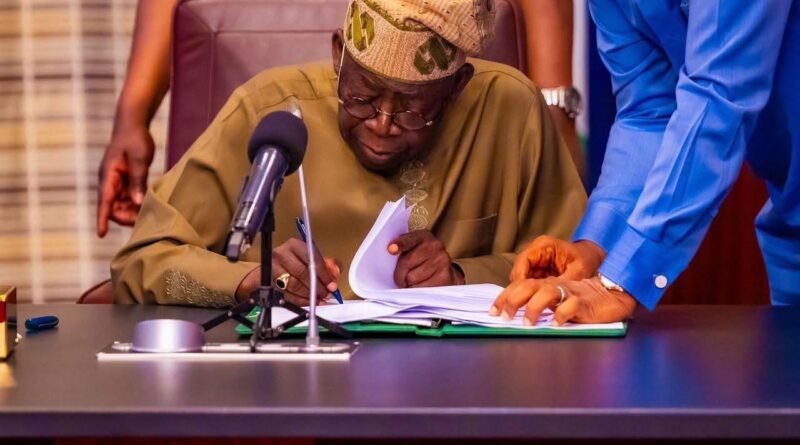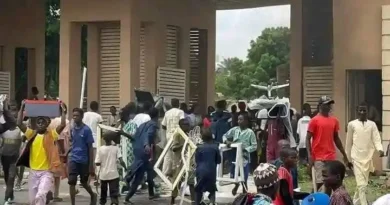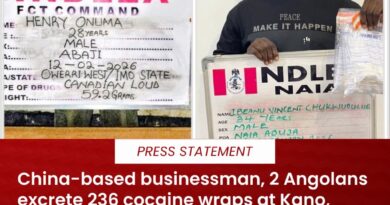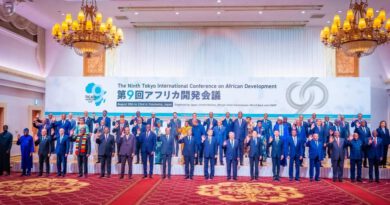Much ado about a presidential pardon
By Tunde Rahman
The past week showed how people can easily misconstrue well-intentioned actions of the government. After the presidential pardon and clemency were handed down to some Nigerians and a few foreigners, intense controversy had erupted. Indeed, some commentators and analysts have been so vocal against the clemency, particularly as it relates to drug trafficking and capital offence convicts.
Following the consultation with the Council of State on Thursday, October 11, President Bola Tinubu granted some reprieve to 175 persons. The reprieve was based on the recommendations of the Presidential Committee on the Prerogative of Mercy, headed by the Attorney-General and Minister of Justice, Prince Lateef Fagbemi.
Pardoned posthumously by President Tinubu were foremost nationalist Sir Herbert Macaulay; poet and soldier Major-General Mamman Vatsa; the writer and environmentalist, Ken Saro-Wiwa and his eight fellow Ogoni activists, as well as the four Ogoni leaders considered his antagonists. Also pardoned were some jailed illegal miners, public officials found guilty of corruption, remorseful drug offenders and capital offence convicts, including Maryam Sanda, who is on death row for killing her husband in 2017 in a matrimonial row. The last two categories are the most controversial. I will dwell on them shortly.
The list of beneficiaries of the presidential reprieve is long and comprehensive. The committee went as far back as what transpired during the pre-independence era. For instance, the pardon granted to Macaulay corrected the historic injustice done to him by the British Colonialists. The case of the Ogoni 4 and Ogoni 9 killings that occurred in November 1995 during the military dictatorship of late General Sani Abacha was to engender complete reconciliation in Ogoniland. This presidential gesture has been widely applauded in Ogoniland and the entire South-South geopolitical zone.
Presidential Spokesman Bayo Onanuga had explained in the statement announcing the pardon that President Tinubu granted the clemency because most of the convicts had shown sufficient remorse and good conduct. Others were due to old age, acute medical conditions, acquisition of new vocational skills or enrolment in the National Open University.
It must be pointed out that the presidency fully disclosed the pardon as a matter of full disclosure and transparency. Some other governments will typically mask the complete list, knowing it would generate controversy. This open gesture signifies that the Tinubu government has nothing to hide. Contrary to the erroneous suggestions by some people, there was no ulterior or political motive to the pardon.
However, whether in Nigeria or other jurisdictions where presidents have the power to exercise the prerogative of mercy, the exercise is always controversial.
A similar storm was ignited during the Second Republic when President Shehu Shagari pardoned former warlord Chukwuemeka Odumegwu-Ojukwu for his role in the country’s 30-month civil war. Public outrage also greeted the full and unconditional pardon granted in 2013 by former President Goodluck Jonathan to his former boss and ally, the late Bayelsa governor Diepreye Alamieyesiegha, who was convicted of stealing millions of dollars.
The presidential pardon and the response it usually elicits are no different internationally, particularly in the United States. President Bill Clinton reportedly signed 140 pardons on January 20, 2001, his last day in office. This included one for his younger half-brother, Roger Clinton, who was convicted in 1985 for cocaine possession and drug trafficking.
According to Newsweek, such was Roger Clinton’s notoriety that the US Secret Service codenamed him “Headache” because of the constant trouble he gave President Clinton in office.
Former US President Biden pardoned his son, Hunter Biden, after he had publicly pledged not to do so. Hunter Biden was convicted between January 1, 2014, and December 1, 2024, of offences, including gun running. President Biden also reportedly pardoned his other relatives who were convicted of sundry offences.
In his first term, President Donald Trump, in December 2020, pardoned Charles Kushner, the father of Jared Kushner, who is married to his daughter, Ivanka Trump. Jared Kushner was convicted of illegal campaign funding, tax evasion and witness tampering. All the pardons were intensely controversial.
Back home, the present clemency for some drug offenders, along with that of Maryam Sanda, has emerged as the most contentious. For instance, in his seeming desperation to nail the government over Maryam Sanda’s pardon, last Tuesday, October 14, a columnist in Leadership newspaper, Abdulrauf Aliyu, went overboard in an article centred on Sanda’s pardon. It was titled “The Theatre of Presidential Pardon.” The columnist lied that the pardon was granted to Sanda before the final determination of the case, claiming that the case was still pending before the Supreme Court.
He proceeded on that wrong premise and argued that the government tempered the law for mercy. Nothing can be further from the truth! This is a rather sad commentary for a columnist who should know better. The Supreme Court has since affirmed the judgment of the Appeal Court confirming Sanda’s conviction.
Sanda’s pardon is well-intentioned. Apart from the reports that Sanda had shown remorse in prison, it has also emerged that her father-in-law, Alhaji Ahmed Bello Isa, the father of the late Bilyaminu Bello, sought clemency for her. Alhaji Isa has disclosed that he personally appealed to both Presidents Muhammadu Buhari and Tinubu to grant her pardon so she can take care of the two children left behind by his son. He said the continued stay of her daughter-in-law or indeed her death would not bring back Bilyaminu.
Also, the convicted drug offenders have spent time in jail. Some of them have even enrolled in the Open University or learned a new trade. It would be unfair to argue that former drug trafficking offenders who have shown remorse and turned a new leaf do not deserve mercy or forgiveness. Clemency for them, in my view, does not mean the war against drug trafficking has been compromised.
The law remains that anyone indulging in illicit drugs will have a date with the law. The National Drug Law Enforcement Agency (NDLEA) under General Buba Marwa (rtd) is doing a yeoman’s job trying to ensure drug traffickers are brought to book and the country is free of hard drugs and their menace.
Instructively, the AGF and Minister of Justice, Prince Lateef Fagbemi, whose committee recommended the pardon, has affirmed that the list is still subject to review. None of the pardoned inmates has been released. He said the process is undergoing the final administrative review to satisfy the required legal and procedural standards before the release instruments are signed and issued. The list of those pardoned has to be gazetted by the government. Until that is done, there is still ample room for review. President Tinubu will not be averse to any required review
The President was moved by compassion and his legendary kind-heartedness in approving the pardon. There is no evidence that he has an offspring, blood relation, or known associate on the pardon or clemency list. The opposition politicians, who have also been very strident in criticising President Tinubu over the pardon, will continue to do so even when confronted with the fundamental justification for the action. However, those who benefited from the pardon and their families will continue to appreciate the President’s humane gesture.
—Rahman is Senior Special Assistant to President Tinubu on Media & Special Duties.




